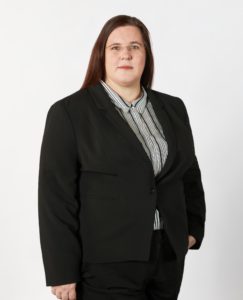Ben Katekar SC and Emma Beechey appeared for three defendants in the Arrium proceedings in the Supreme Court of New South Wales. Justice Ball recently handed down judgment, dismissing all of the claims against all of the defendants: Anchorage Capital Master Offshore Ltd v Sparkes (No 3); Bank of Communications Co Ltd v Sparkes (No 2) [2021] NSWSC 1025. The hearing was conducted over 10 weeks from March to May 2021, with 38 hearing days, 30 parties, nine law firms, 35 Counsel, 40 witnesses, hundreds of thousands of documents and thousands of pages of written submissions.
The proceedings arose out the collapse of the Arrium Group (formerly OneSteel), a mining and steel manufacturing group of which Arrium Limited was the listed parent company. The plaintiffs included banks that had lent to Arrium on an unsecured basis, hedge funds that had purchased bank debt and the liquidators of the Arrium Group companies.
Ben Katekar SC and Emma Beechey represented Ms Verawati, Ms Hall and Ms Lieu, employees working in the treasury and finance departments of the Arrium Group. Anchorage Capital, Deutsche Bank and Commonwealth Bank of Australia brought claims against the employees personally for negligence, negligent misstatement and misleading and deceptive conduct, claiming that the employees had personally made representations as to the financial position of the borrowing companies when the employees signed 39 drawdown notices and rollover notices as Authorised Signatories of the borrowing companies (Anchorage claims). There were also related claims against the CFO and the Treasurer.
The principal impugned representation was a representation deemed by the facility agreements to have been made in the notices that there had been no change in Arrium’s financial position having a material adverse effect (MAE) on the ability of the companies to repay the loans.
The Anchorage claims were for the banks’ remaining loss after receiving dividends of 80 cents in the dollar in the liquidations. The remaining loss claimed was around $95 million.
Justice Ball found that each of Anchorage’s claims in negligence and negligent misstatement failed on three main grounds.
First, his Honour was not satisfied that the employees owed a duty of care in relation to the representations contained in the notices. His Honour held that the representations were not being made and given by the individual employees in a personal capacity, and that it was not reasonable for them to have realised that the lenders would be relying on their personal knowledge or expertise in making the representations. His Honour found that the lenders understood the representations were being made as part of a contractual mechanism permitting drawdowns and rollovers to occur, and that they were not vulnerable to the consequences of a lack of reasonable care on the part of the employees, considering that they could, and did through the terms of the agreements, protect themselves against errors in the notices.
Second, there was no breach. His Honour observed that it was not apparent why the onus was on the employees to make enquiries as to whether changes in Arrium’s financial position had a MAE before signing the notices, and why they were not entitled to rely on those in authority to tell them if and when the representations could no longer be made or required qualification. This was particularly so considering that the drawing down and rolling over of amounts under the facilities was part of Arrium’s normal business.
Third, Justice Ball found that the claim also failed on causation. Even if the employees had made enquiries, they would have been directed to the CFO, who would have told them that the MAE representations were true. In any event, his Honour also found that the MAE representations were true, there not having been a change in Arrium’s financial position during the relevant period that had a MAE on the ability of the companies to repay the loans. In addition, his Honour was not satisfied that Anchorage relied on the representations made by the employees. Rather, his Honour found that throughout the period during which the drawdowns and rollovers were made, the lenders appreciated that there was a risk that they would not be repaid in full. His Honour also found that the lenders were capable of making enquiries and forming their own assessment of Arrium’s financial position, and therefore were capable of making decisions that were in their best interests independent from the MAE representations.
In relation to Anchorage’s misleading and deceptive conduct claim, Justice Ball observed that it was necessary for Anchorage to prove that the employees personally engaged in misleading or deceptive conduct. Drawing upon his earlier reasoning, his Honour found that the employees by signing the notices were not making personal promises that the representations were true. Rather, the employees merely acted as a corporate organ. In any event, His Honour held that the representations were concerning future matters, which could only be misleading if made with no reasonable basis. Here, his Honour found that it was reasonable for the employees to assume the representations were true unless told otherwise by the Board. His Honour further found that there was no reliance or causation, for the same reasons as applied to the negligence claim.
The hearing of the Anchorage claims was conducted concurrently with the hearing of a similar claim brought by Bank of Communications, Westpac Banking Corporation and Banco Bilbao Vizcaya Argentaria (BBVA) for around $100 million (BoC claims) and an insolvent trading claim brought by the liquidators against the directors. The insolvent trading claim was settled during the course of the hearing.
While the Anchorage claims relied on the alleged MAE, the BoC claims were based on the alleged MAE or alternatively the insolvency of the borrowers. His Honour found that Arrium was not insolvent at the relevant times. The BoC plaintiffs alleged that Arrium was insolvent because it was unable to pay debts falling due in 18 months’ time. In rejecting this argument, his Honour made two important observations. First, there needed to be a high degree of certainty that such a state of affairs would come about, on the basis of the facts known at the time and without resort to hindsight. Secondly, since Arrium was a publicly listed company that relied on borrowings for part of its working capital, it was standard practice for the company to rollover the relevant borrowings as they became due for repayment. Therefore, the BoC plaintiffs bore the onus of proving that it was unlikely that Arrium’s creditors would be prepared to extend the loans on some basis. Ultimately, His Honour found that on the available evidence, neither of those matters could be established. Arrium had at least 16 months to deal with the facilities falling due, and there was no suggestion that the accounts were defective, or that there was a substantial decrease in Arrium’s assets. Given the time available, his Honour found that it was expected that Arrium would, if necessary, either be able to sell assets or raise finance on security of those assets in order to repay the facilities by the time they fell due.
Accordingly, Ball J dismissed all of the Anchorage claims and all of the BoC claims against all of the defendants.

